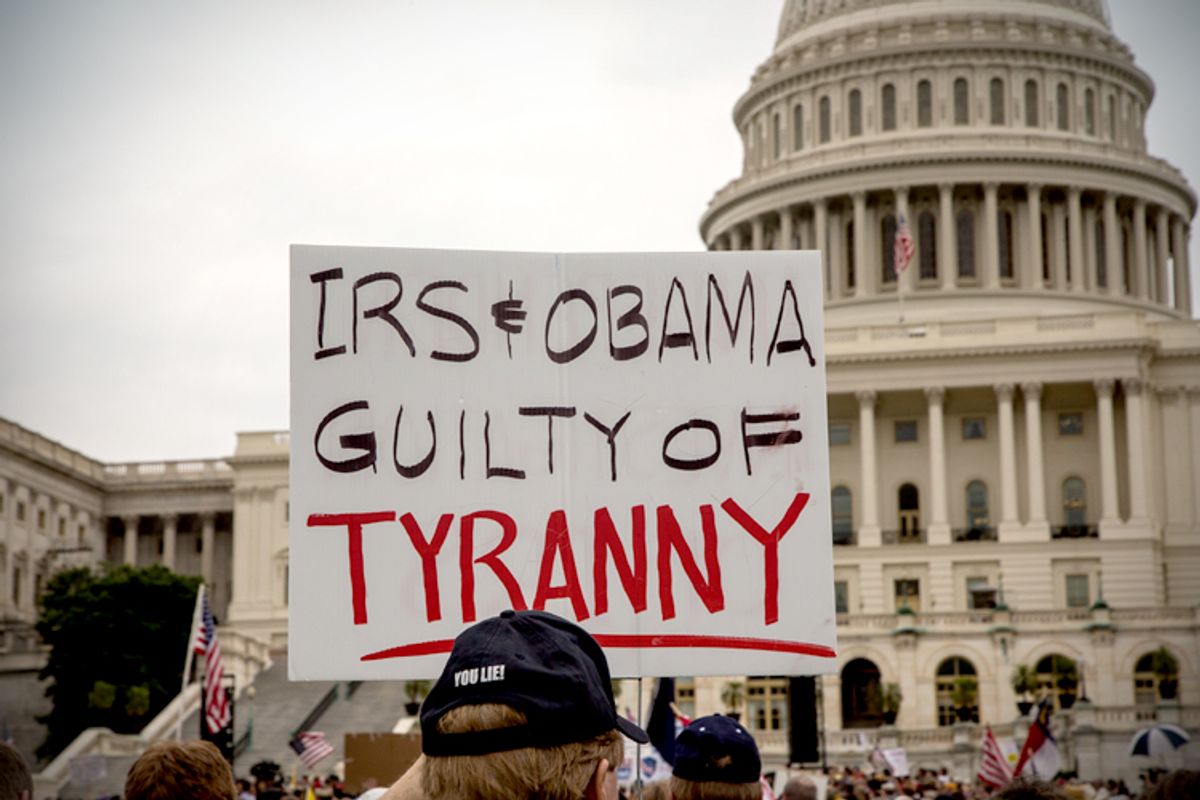The Treasury Department inspector general who got the IRS -- and then himself -- in hot water over his report detailing alleged targeting of Tea Party groups, said he didn't know the IRS had also flagged for review the applications of "progressive" and "Occupy" groups until after publishing the results of his audit.
"We just learned about that recently," J. Russell George told members of the House Oversight Committee this afternoon, saying he was not given a target list beyond Tea Party ones. “I am disturbed that these documents were not provided to our auditors at the outset, and we are currently reviewing the issue." It was typical of George's answers today -- defensive, occasionally apologetic, but mostly promising more information later.
Republican Chairman Darrell Issa promised this morning to show involvement in the targeting from officials in Washington, but today's back-to-back hearings with five IRS officials produced no new evidence of that claim, and two officials said this morning that they saw no political motivation behind the screening. Instead, much of the time was spent on George, who Democrats suggested had left out critical information in his report about the alleged targeting. Republicans, meanwhile, apologized to and defended George.
"It looks like you only wanted to look for Tea Party groups," Democratic Rep. Jackie Speier said. "I'd say your audit tried to smear, or tried to blame someone. I think an eighth grade class who was asked to do an audit would look at both sides."
The hearing got even more tense when Rep. Matt Cartwright, a Pennsylvania Democrat, pressed George on why he told the same committee two months ago that the IRS had not targeted liberal groups. George acknowledged that he was wrong, and that there had been liberal "BOLOs" (Be on the Lookout lists), but said he received relevant documents too late.
George and two deputies testifying with him also acknowledged that they may have erred by failing to mention in their report the fact that a separate group of investigators reviewed 5,500 internal emails and found “no indication that pulling these selected applications was politically motivated." George said that important data point was not included in his report because his staff told him there was "a smoking gun email," and when they failed to find it, he suspected emails may have been deleted.
"Nothing here changes our conclusion that the IRS engaged in inappropriate behavior," George stated, saying that even though liberal groups may have been flagged, they were not treated in the same way as Tea Party groups.
Still, he stumbled and backtracked on several occasions in his testimony and appeared nervous. For instance, he said he hadn't had a chance to read the scathing letter sent to him last week by Rep. Elijah Cummings, the top Democrat on the committee.
He also said, perhaps a bit implausibly, that he couldn't judge an organization's ideology from its name. "Progress? I have no idea what that even stands for," George said, noting that Teddy Roosevelt ran on the Progressive Party.
The IG also defended himself against accusations of political bias, saying that while he was appointed by George W. Bush twice and then "saw the light and joined Bob Dole's staff during college," he was previously involved in Democratic politics and is now non-political.
For his part, Issa repeatedly stated, “I look forward to seeing evidence that progressive groups were treated equally harshly, delayed, and anything more than looked at." The truth is it's already out there. NPR spoke with a progressive group in Utah that waited close to 600 days, and another in Missouri waited over a year. Bloomberg, meanwhile, found groups that had been sent similar letters to the ones conservatives got.
Regardless, it's clear that it's going to be some time before we get more information from George's office. He said the investigation is still ongoing and that it would take perhaps more than a month for his office to review treatment of non-conservative groups and even said it may take another year.



Shares